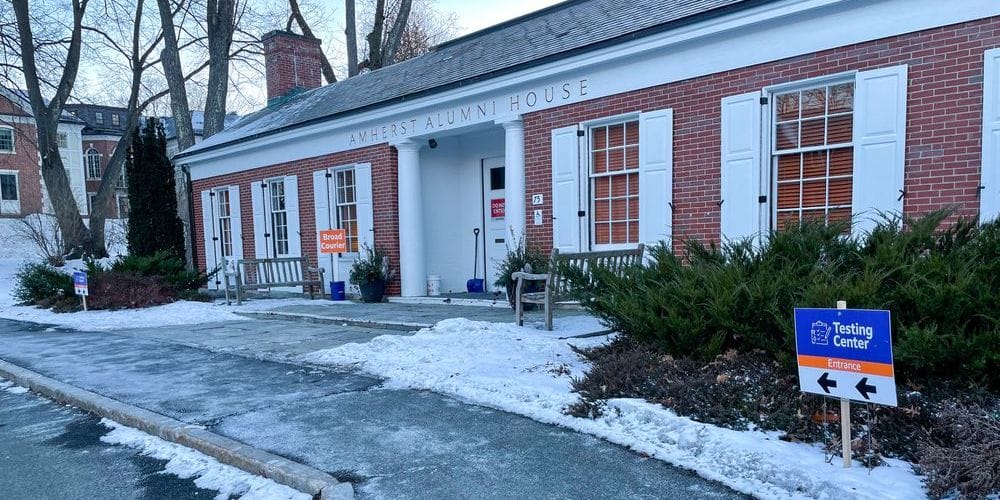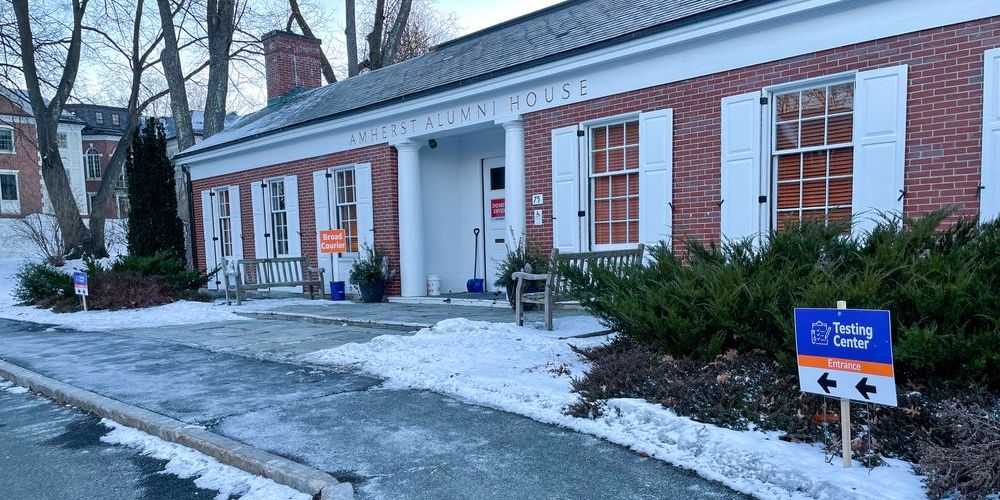College Loosens Initial Spring Covid Protocols
The college has loosened some of its initial Covid restrictions following the success of its protocols for move-in and the first week of classes. Students and professors expressed understanding for the initially stricter protocols, while yearning for a return to near-normalcy.


The past few months have seen a number of changes in the college’s Covid policy. On Feb. 8, the college detailed a plan to relax its Covid protocols following the success of its initial adjustments to begin the spring semester, which were disseminated in a Jan. 11 email. While Covid cases spiked over the January term (J-term) in the wake of the Omicron variant, the delayed start and remote first week of classes seem to have mitigated the influx of cases following move-in for the spring. Students and faculty expressed an understanding of the need for continued Covid protocols, but still yearn for a return to near-normalcy.
The college’s initial decisions about spring Covid protocols came in the wake of a national rise in Covid cases, particularly of the Omicron variant. After cases surged in late December, the college modified plans for the January term by recommending that classes be held online. It also encouraged students to stay off campus during the month if possible.
Covid cases rose higher during J-term than in the fall. “Consistent with the case rates in the area and across the country, we did see a higher number of cases during J-term than any previous time,” said Director of Student Health Services Dr. Emily Jones. “Thankfully, most positive students have been only mildly symptomatic and some had no symptoms.”
Tyra Redwood ’25 reflected on her experience testing positive for Covid over J-term. “Overall, my Covid experience was chill,” she said. “It was a nice simple inn that was comfortable and calming so I got to start off my New Years in peace. Every day at 11 a.m., they would give me a bag of food that ideally would last a day and a half, though if you were a big eater they had extra snacks. I could do laundry as well; they gave me quarters and detergent . … I had a person check up on me once a day (for mental well-being) through text.”
Following new CDC recommendations for shortened isolation times, President Biddy Martin announced in a Dec. 30 email that students are now required to isolate for five instead of 10 days. The college also specified that Valentine Dining Hall and other non-academic indoor spaces would operate at 50 percent capacity and required KN95 masks inside all spaces.
The same email increased the frequency of required PCR testing from two to three times a week until Feb. 18.
On Jan. 14, Dean of Students Liz Agosto and Provost and Dean of the Faculty Catherine Epstein sent an email addressing Covid testing compliance. “Last fall there were a number of students who consistently failed to comply with the testing and masking protocols. In addition, student testing compliance fell below 80 percent several weeks in a row,” the email reads.
As a result, students who fail to test on two consecutive testing days will receive communication from the college, and on three consecutive days their ID cards will deactivate. If a student’s ID card is deactivated more than three times during the semester, they will be administratively withdrawn from the college.
Agosto cited last semester’s problems with testing compliance as the reason behind the strict rules. “We heard from many faculty, staff and students who were concerned about the number of students who were not complying with the measures that are so important to protecting the health and safety of our community,” Agosto said. “That was one of the motivators behind the new non-compliance policy.”
For the most part, students understand the college’s motivations behind the stricter rules introduced by these emails, although some expressed mixed feelings about testing three times a week.
“I will say the testing three times a week is certainly an ‘in your face’ kind of thing. All my friends always make sure to remind each other because we are kind of scared of the penalties. We just hope this [rule] doesn’t last long because it is a little stressful, though I understand what caused the college to do this, and concern for safety,” Redwood said.
Mia Kintiroglou ’25 agrees. “The strict three times per week testing is a lot but, honestly, I can’t be annoyed with the school for wanting to keep us healthy.”
Catherine Charnoky ’24 reflected on mask wearing and testing, saying “I think that it's probably good that they're still wanting students and professors to wear KN95s and that we’re testing frequently to make sure we catch any cases.”
Charnoky also expressed that “I do think it's very extreme that if you don’t comply for long enough you have to leave campus. That's definitely unnecessary. … I think there are other forms of punishment that could be used, or incentives that could be used instead,” she said.
Staff have also been affected by these changes. Epstein asked faculty members to remind students to mask correctly and request they leave classrooms if they persistently break protocol. Faculty will also be informed when students fail to comply with testing protocols, and are advised to request that those students not attend class.
“I don’t think faculty want to be in the position of monitoring testing but given how important this is, we can play this role when we get contacted about a student,” said Pawan Dhingra, professor of American Studies. “No faculty member wants a student to miss class, and students equally want to attend class. I hope that this new intervention will help students with testing compliance.”
William McCall Vickery 1957 Professor of the History of Art Nicola Courtright expressed, “I would not say ‘you can't come to this class,’ I would have a personal conversation with a student and say, 'This is why it's important.”
The college views its move-in protocols as successful thus far. Chief Strategy Officer Kate Salop noted, “While 38 students tested positive for Covid-19 during the move-in period, that number would have been much higher, given the number of students who tested positive — and therefore isolated — at home before traveling to campus. Extending the move-in over a longer period also allowed us to manage a fewer number of cases each day (typically anywhere from four to 11), rather than having 38 over the course of one or two days.”
The Feb. 8 email announcing the college’s plans to relax the stricter aspects of the spring-term Covid restrictions shows light at the end of the tunnel for students hoping for a return to near-normalcy.
After Feb. 14, all indoor spaces, including Valentine Dining Hall, will return to full capacity. On that date, masking in residence halls will also become optional — except during programmed residence-hall events — although KN95s will still be required in all other indoor spaces.
While indoor restaurant dining remains prohibited until Feb. 18, students may walk to town to pick up meals or prescriptions. Feb. 18 will also bring a return to twice-a-week Covid testing. Additionally, visitors with boosters or negative test results taken within 72 hours may attend official college indoor events, including athletics contests, at the discretion of hosting departments or programs.
Going forward, Jones and Director of Emergency Management Matthew Hart said, “We appreciate the community’s willingness to continuously adapt to the changing circumstances of the pandemic; to take the necessary measures to keep yourselves, your peers and our college community healthy; and to bring your energy, optimism, and flexibility to bear as we continue to navigate this together.”





Comments ()